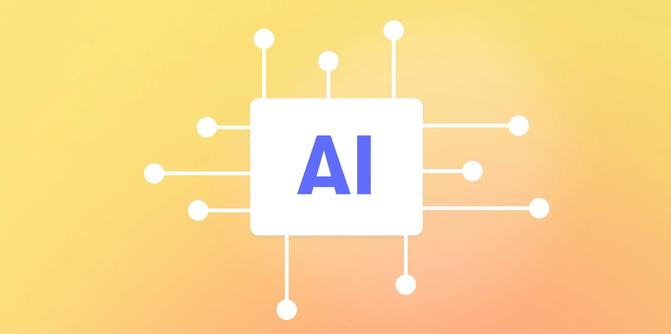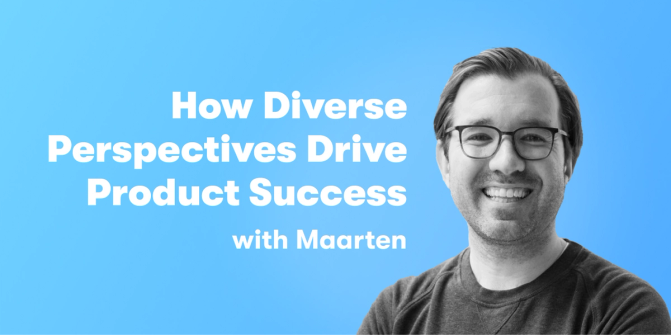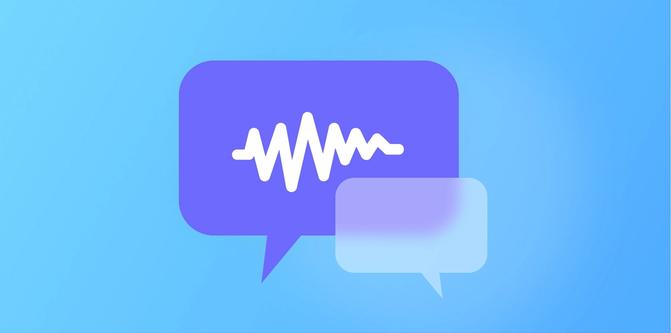What does the future of AI look like?
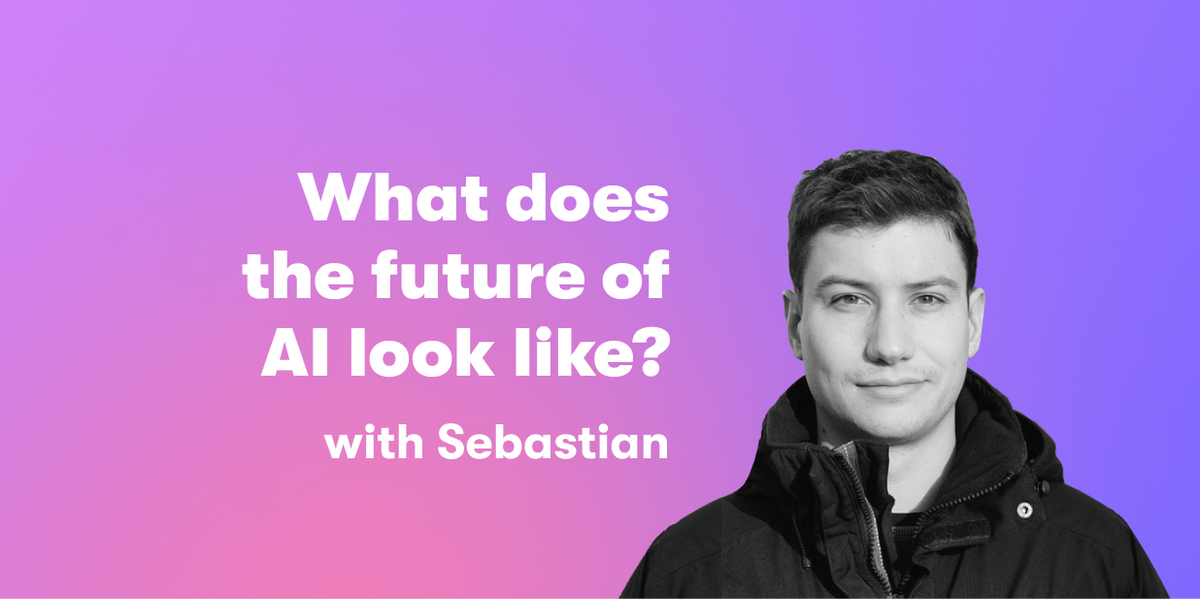
The future of AI: An interview with Collato's co-founder
Here at Collato, we’ve had a lot of discussions about artificial intelligence. Once one question is answered, it seems like we already have two more. Where is this all going? How is this AI-generated Jay-Z song so good? What about data protection? What are the ethical implications? And can we use AI at work?
Since we had so many questions, we asked our Chief Technology Officer and Co-Founder, Sebastian Oehlschläger, all of our burning questions. He’s the man behind all of the tech at Collato, and our go-to tech expert. Sebastian has been a driving force behind our product’s transition to AI and has years of experience navigating technological evolutions and leading a diverse and talented team.
Hey Sebastian, could you give us a brief description of your background in tech and how you got here, and how your background led you to take part in the AI revolution?
Hey! I’m Sebastian. I’m the CTO and co-founder of Collato. Our product utilizes AI, our team uses AI, and our future will revolve around AI.
My first exposure was many years ago while I was working on the pricing team at Europe’s largest online fashion retailer. Even then, we got spectacular results using a neural network. It was impressive, and there was a lot to learn–there still is.
In the past year, I've been diving more into AI. Last year when OpenAI made some APIs available, I began learning more about our language models. I’m still learning every day!
What do you see as the future of artificial intelligence in the short term, and do you anticipate any significant advancements in the coming months?
It is an exciting time for AI. We continue to discover new ways to leverage its power. But we’re still in the early stages of fully taking advantage of AI, and this will likely continue for some time. Even OpenAI has stated that they won't release GPT-5 for a while, so there’s a lot more to squeeze out of GPT-4.
There is still a lot of untapped potential in the latest models. It’s unclear whether we will see significant advancements in the coming months in terms of creating bigger and bigger models. There is a trend towards more efficient and compact models that are similarly smart. I see that advancing.
"In the coming months, I see a continuous upward trend in efficiency. AI will get more compact, and use less resources like memory and processing power."
In the next six months, I anticipate the focus will be more on how AI gets used and regulated rather than creating crazier new models. OpenAI, for example, is likely still building out the next level of architecture that can support the next jump in intelligence by facilitating larger datasets. However, there may be a plateau in the future unless we have significantly more data to train on.
One key challenge facing AI is that larger models require more computing resources. To overcome this, there is a growing trend towards creating more efficient models. For instance, the Stanford lab took a small model developed by Facebook and trained it with GPT-3 to make a much more compact model.
It is also interesting to consider what additional sources we can take into account beyond human knowledge. There is a finite amount of human knowledge, so it is unclear how much further we can push the limits of AI using this data alone.
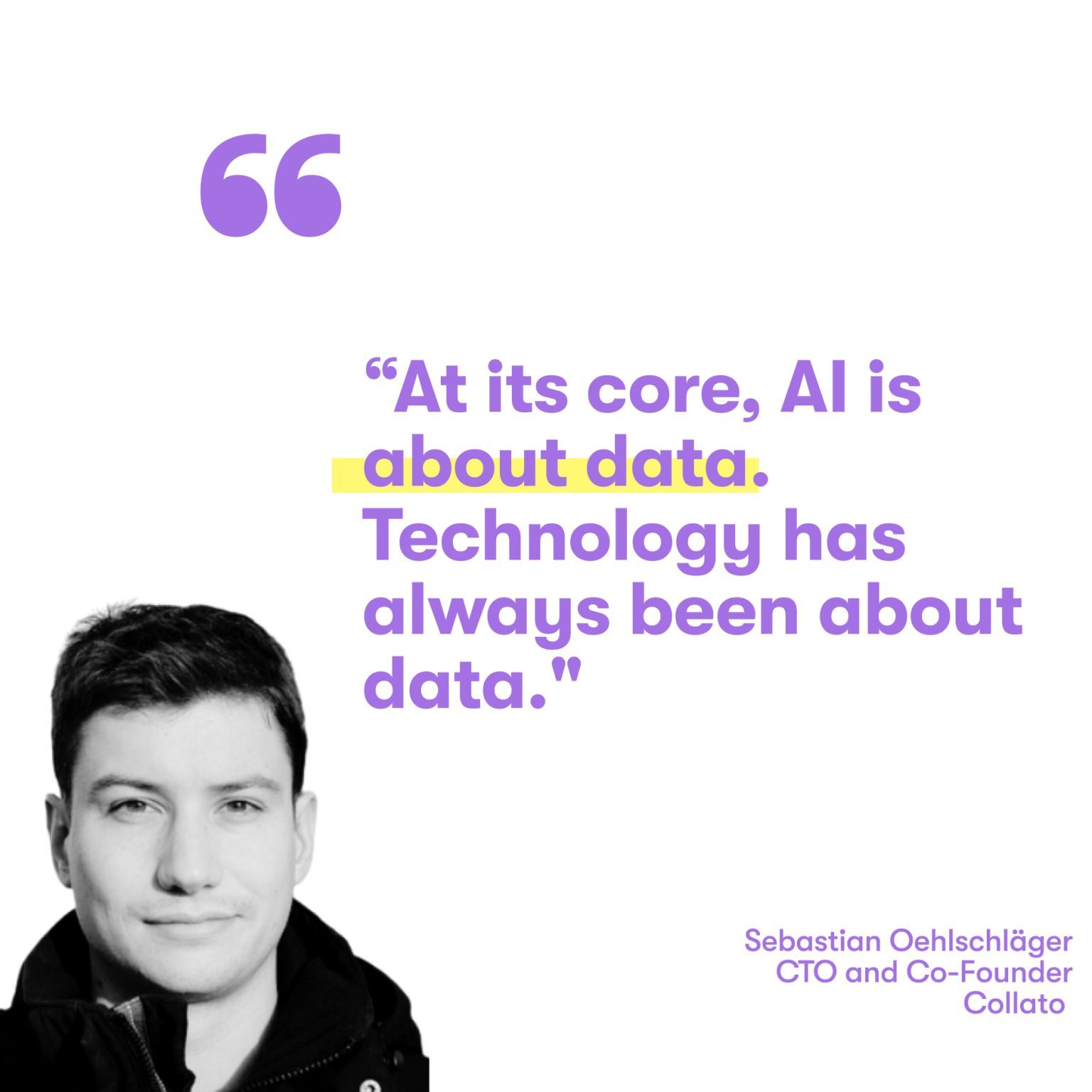
Which industries do you think will be most impacted by AI in the future?
There has been a lot of talk about AI's potential impact on the healthcare industry, with many potential use cases. If trained right with the right data, AI could help eliminate racial biases that are present in some healthcare systems, or help doctors make more objective diagnoses based on patient data.
"At its core, AI is about data. Technology has always been about data."
However, I think we will see the immediate impacts of AI in the media and education industries. Education has already been turned upside down by technology, but AI has the potential to take things to a whole new level. Institutions have struggled to adapt to changes like the availability of open-source data as a research tool. But with AI, there will be even more rapid change that they’ll have to adapt to immediately.
In the media industry, we will see more and more content being produced by AI, from tweets and blog posts to videos and even music. This could have implications for politics as well, as AI can be used to manipulate public opinion and spread misinformation. Ultimately, I think this could lead to increased regulation of AI, particularly in the political sphere.
What are some potential legal implications of the increasing use of AI in those industries, then?
One example would be the issue of using copyrighted data for AI training. For instance, if someone were to use copyrighted music to train an AI model to create music in that same style, it could be considered copyright infringement. The same goes for artwork. If an AI model is trained on an artist's entire body of work to create similar pieces, it could be seen as copyright theft.
I believe regulation will need to address these issues, and one potential solution could be to enforce attribution, requiring AI models to identify which sources they used to generate their content.
Many companies, including OpenAI, are already building regulatory measures into their training procedures to effectively weaken models, at least from an intelligence perspective, and make them more controllable. There are also ways to circumvent these protective measures, so regulatory measures will need to be more robust. One solution some have proposed may be to have an AI controlling AI, with a secondary AI evaluating input requests before the primary AI answers them. Ultimately, I think controlling AI with AI may be the best solution.
How can workers retrain and adapt to a changing job market? What do you think about the impact of AI on your own industry?
Well, it's certain that jobs will change as a result of AI. People who leverage AI will likely be better at their jobs than those who do not. This means that most jobs will need to be done slightly differently to leverage AI. It's hard to say where the line is between jobs that will be slightly different and those that will be completely eliminated by AI.
There are some jobs that involve very repetitive tasks that could possibly be eliminated. But the question is whether someone who does this kind of work will use AI to speed things up and have additional capacity for responsibilities. Either way, whether a job is eliminated or not, productivity will likely increase.
Tasks will get eliminated, but that doesn't mean roles will be eliminated too. New tasks will come, too, as a result of all of this. Just the time spent on new tasks will be significantly smaller than the time saved on the eliminated tasks.
We could regulate the productivity gains of AI to lower work hours. We could consider lowering work hours to 30 hours a week. This could be an interesting trajectory for the future, as it may help all of us switch to a 3 or 4-day work week. Of course, this is just an idea I like to daydream about.
In terms of my own team, we will definitely find ways to automate parts of our code creation in the next 5 to 10 years. Part of our system will be written by engineers, while another part will be self-expanding. This is something we are already actively exploring, and it will help us be more productive, and it will make our lives easier.
What potential challenges or barriers do you see in the full adoption of AI in your industry?
There are two major challenges that come to mind.
The first challenge is the lack of control or regulation over AI. The models find their own path to becoming intelligent, but this path is not humanly understandable. We cannot be sure that if we let AI do a task, it will result in a guaranteed good outcome, unlike with explicit logic in traditional coding.
The second challenge, AI always has input limits. Models get trained on limited text inputs and cannot analyze an entire book or codebase without some kind of preprocessing or limiting the input size.
AI shouldn’t just be slapped onto products just for the sake of it. Instead, we believe that there will be fundamentally new opportunities arising from AI. Like, for search engines that can comprehend and distill knowledge so well that it makes sense to have them in a company compared to the public web. We also believe that AI can be used to enhance creation and performance, such as designing things, writing books, or creating personalized gifts. These are all new product categories that can emerge from AI, and we are excited to see what the future holds.
Last question, will AI end the human race? Be honest.
*For the record, I heard a nervous laugh here*
It's exceptionally important to acknowledge that the potential impact of AI on humanity is a topic of concern. It's understandable. However, it's important to consider that AI is simply a tool, and like any tool, it can be used for both positive and negative purposes.
While it's true that there is the potential for AI to be used in harmful ways, such as the creation of deepfakes or the dissemination of manipulative content, there are also countless positive applications for AI that could greatly benefit humanity. One of the most exciting possibilities for AI is its potential to revolutionize science and research. With the ability to analyze massive amounts of data, AI could accelerate scientific breakthroughs in fields such as medicine, environmental science, and energy. Those leaps can’t really be ignored.
"AI has the potential to facilitate major scientific and technological breakthroughs. It can amplify positive content, good data; just as it can, unfortunately, amplify negative outcomes, too."
AI could also have a positive impact on education, making knowledge and information more accessible than ever before. With AI-powered learning tools, students of all backgrounds and abilities could have access to personalized education that adapts to their individual needs and learning styles. AI could provide new opportunities for people in remote or underserved areas to access education and training that would otherwise be out of reach.
Another potential benefit of AI is its ability to automate tedious or dangerous tasks, freeing us humans to focus on more creative and fulfilling work. This could lead to a more balanced and fulfilling work-life balance for people, and could even lead to the implementation of a basic income or other seemingly radical approaches to work-life balance.
With proper oversight and thoughtful implementation, AI could have a tremendously positive impact on humanity, leading to new discoveries, greater access to knowledge and education, and a more fulfilling and balanced way of life for people all around the world.


